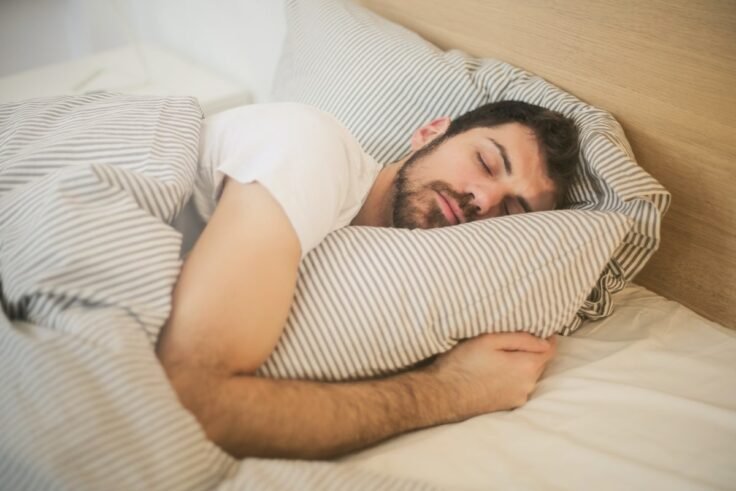What Athletes Need To Know About Recovery And Sleep

Here is what scientists found about recovery and sleep and how their research might help you enhance your athletic performance.
If you’re an athlete, it might surprise you to learn that sleep is as important for your success as your actual workouts and training sessions are.
Lack of proper sleep hinders your performance and also your recovery time. So check out what research says about recovery and sleep for both athletes and regular people.
Science-Based Recovery And Sleep Tips For Athletes
The following are three essential things scientists consider you need to know about recovery and sleep:
1. Your Diet Affects Your Sleep
You probably already knew that caffeine consumed late in the afternoon is likely to negatively interfere with your ability to get to sleep.
However, there are quite a few other ways that the substances you ingest could prohibit or promote healthy sleep.
To improve your sleep, consider all of the following ways your diet can affect your sleep:
Energy Drinks May Contribute To Insomnia
Energy drinks appear to be a mixed bag for athletes.
Research suggests that they do seem to have a positive effect on some aspects of athletic performance, but they can also lead to insomnia and increased levels of nervousness when athletes consume them.
Use them with caution!
Prebiotic Foods Appear To Promote Restful Sleep
Recent research reveals that prebiotic foods, including leeks, artichokes, onions, lentils, and cabbages, seem to help with improving sleep, assisting with recovery, and protecting against the effects of stress.
It’s beneficial to eat these foods anyway, but now you have an extra reason to load up on the prebiotics.
Added Sugars May Contribute To Insomnia
If your diet includes high amounts of sugar and refined carbohydrates, those choices apparently leave you more vulnerable to insomnia than you would be otherwise.
Researchers conducted a study to determine how dietary choices affect sleep. They discovered that diets including highly processed foods and high levels of refined sugars tended to reliably trigger insomnia, whereas diets rich in vegetables and whole fruits tended to not trigger insomnia.
This research was not conducted specifically on athletes, but the researchers involved believe that their results are relevant to a broad population of humans.
High-Fat Diets Are Linked With Poor Sleep
Researchers have determined that high fat intake appears to result in multiple detrimental outcomes for men including:
- Daytime sleepiness;
- Lower levels of alertness;
- A greater propensity for developing sleep apnea;
- And an increased tendency to suffer from poor sleep.
You already knew that you need to eat your vegetables, avoid excess sugars, and stay away from overconsumption of fat. But now you have yet another motivation for doing all of the above.
2. Extra Sleep Could Improve Your Athletic Performance
Research conducted by the American Academy of Sleep Medicine indicates that extended sleep times result in significantly improved performance metrics for athletes.
Some of the documented results included faster sprint times and improved free-throws.
The study subjects also enjoyed increased energy levels and decreased levels of fatigue during practice sessions and games.
If you were to indulge in extended sleep durations, you’d be likely to experience similar results.
3. Lack Of Sleep Makes You More Susceptible To Injuries
Research conducted by the American Academy of Pediatrics indicates that teenaged athletes who routinely sleep for at least eight hours each night are 68 percent less likely to suffer injury than athletes who habitually get less sleep.
The researchers found that the two greatest risk factors for injury were hours of sleep and grade in school.
The older athletes displayed a greater tendency towards injury than the younger ones did.
Rest, Rest, Rest!
If you’re an athlete, these are 3 of the most important things you need to understand about recovery and sleep.
If you’ve been skimping on sleep, we challenge you to consider these excellent reasons to rest up and improve your recovery.